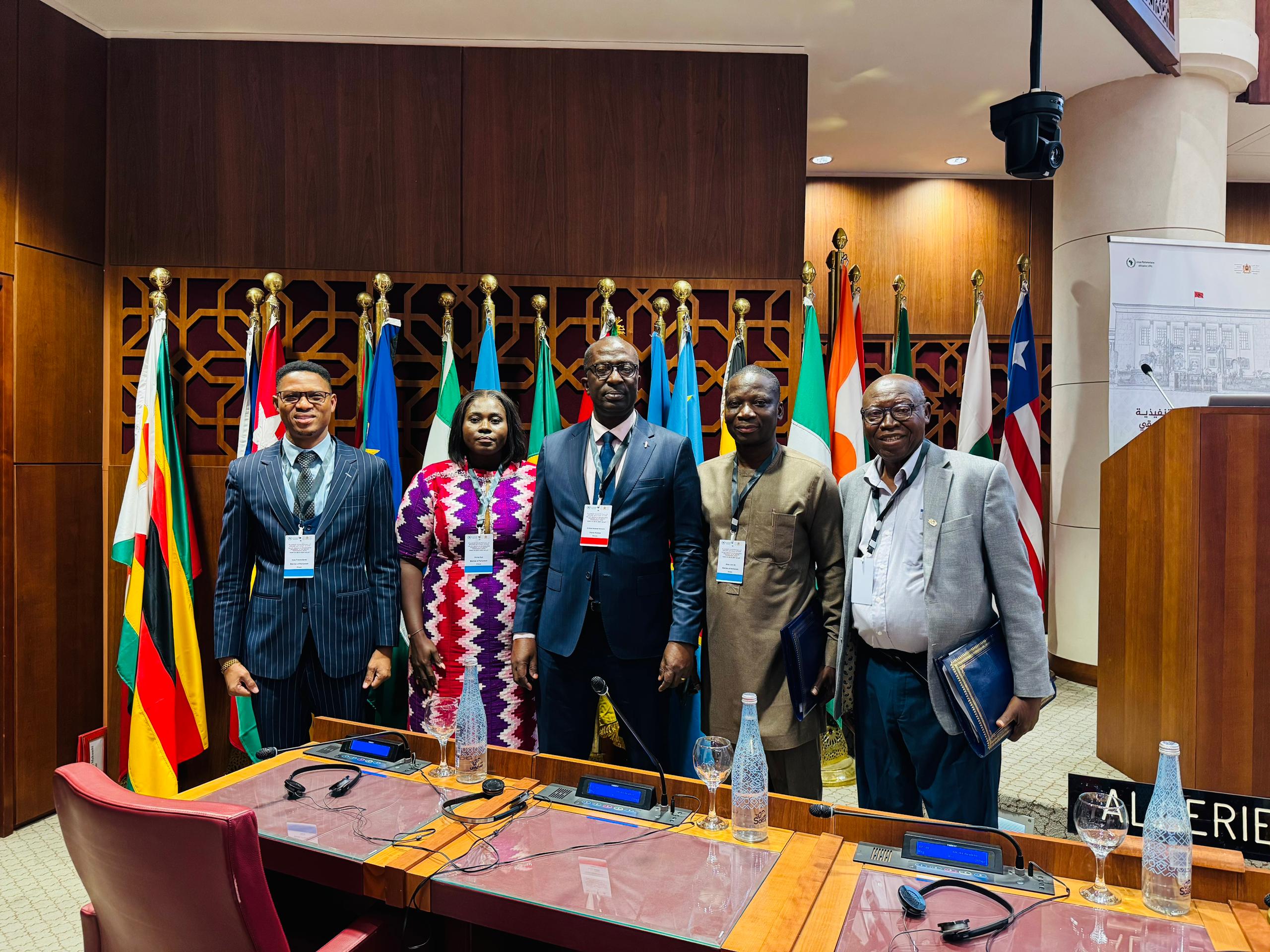The Former Finance Minister and Ranking Member, Finance Committee in Parliament, Dr. Mohammed Amin Adam, has proclaimed that the recent admission by President John Mahama, crediting the appreciation of the Ghanaian cedi to Ghana’s Gross International Reserves, standing at $10.6 billion as of April 2025, has vindicated their long-standing position on appreciation the Ghana cedi.
According to him, “the stability of the cedi is anchored in the robust foreign reserve buffer built under the previous NPP administration”.
“Of this amount, a substantial $8.98 billion was inherited from the NPP government. This reaffirms that the current NDC administration has not introduced any fundamentally new or innovative policy measures to stabilize the local currency but has rather benefited from the strong macroeconomic buffers it inherited”, he submitted.
The former Finance Minister also takes on the current Minister for Finance, Ato Forson, on his statement, describing the GoldBod programme of buying and selling gold for forex as a strategic instrument “for achieving currency stability.” Thus, “both the President and his Finance Minister concede that the NDC government has not introduced any new policy to support the local currency to achieve macroeconomic stability”.
Below is the full statement:
PRESIDENT MAHAMA HAS VINDICATED THE NPP ON CEDI APPRECIATION
The recent admission by the President, crediting the appreciation of the Ghanaian cedi to the country’s gross international reserves, standing at $10.6 billion as of April 2025, confirms a central point: the stability of the cedi is anchored in the robust foreign reserve buffer built under the previous NPP administration.
Of this amount, a substantial $8.98 billion was inherited from the NPP government. This reaffirms that the current NDC administration has not introduced any fundamentally new or innovative policy measures to stabilize the local currency but has rather benefited from the strong macroeconomic buffers it inherited. Also yesterday, Minister for Finance, Ato Forson, MP, described the GoldBod programme of buying and selling gold for forex as a strategic instrument “for achieving currency stability.”
Thus, both the President and his Finance Minister concede that the NDC government has not introduced any new policy to support the local currency to achieve macroeconomic stability. What they have done is to simply implement the seismic policy shift introduced by the New Patriotic Party out of the crisis of 2022 to leverage gold as a critical weapon for defeating the old enemy to Ghana’s economy since Independence, currency depreciation.
The then Vice President Mahamudu Bawumia thought out of the box and saw that it was possible to keep our cedi strong and stable using Ghana’s gold and that initiative is what the current government is relying on. To achieve this objective, we first had to aggressively build up Ghana’s gold reserves.
The NPP government did just that, through the Bank of Ghana, by increasing Ghana’s gold reserves from 8.78 tonnes in May 2023 to 30.53 tonnes by the end of December 2024. We did so deliberately to enable Ghana’s gold reserves to serve as the strategic anchor for the Gold For Forex (G4FX) initiative we had introduced. Apart from building gold reserves, proceeds from the export of gold purchased by BoG through PMMC (now Goldbod) were used to build the country’s foreign exchange reserves and to support the Gold for Oil Programme.
In the past four months, the NDC government has added only about $1.6 billion to the foreign exchange reserves of the country, despite favourable exogenous factors including improved cocoa export receipts, stronger inflows from remittances, and elevated global gold prices. It is important to note that under the NPP administration, the Bank of Ghana (BoG) strategically built up reserves to meet—and eventually exceed—the IMF’s reserve adequacy benchmark of three months of import cover.
By end-2024, Ghana had reached an import cover of four months, marking a significant overperformance. This strong external buffer directly contributed to the IMF lifting constraints on BoG’s forex market interventions in December 2024.
Such policy space was therefore inherited by the NDC and not by dint of hard work. During the NPP administration, BoG’s interventions in the FX market were prudent and disciplined, with the IMF capping monthly interventions at $80 million (later revised to $60 million) to preserve transparency and prevent artificial distortions. In contrast, the lifting of these caps due to the reserve over-performance by the Akufo-Addo/Bawumia government has led to aggressive interventions by the current administration —most notably, the reported injection of $590 million into the FX market in April 2025 alone.
Furthermore, the current government’s performance in gold reserve accumulation has been underwhelming. Since January 2025, it has added less than one metric ton to Ghana’s strategic gold reserves, which stood at 31.37 metric tons by end-April. This is in sharp contrast to the pace and ambition of the gold purchase program initiated by the NPP—a policy that the NDC has merely continued.
The forex proceeds from PMMC and Goldbod exports are now being injected into the market to support the cedi, leveraging a policy infrastructure developed under the previous government. The gold purchase programme is a policy initiative of the previous NPP government and we expect the government to be transparent about its implementation to ensure that the gains on the cedi are sustained. It is, therefore, misleading for some economic commentators and NDC affiliates to suggest that recent cedi gains reflect a shift in macroeconomic management.
Rather, what we are witnessing is the dividend of institutional and policy continuity—especially the foreign reserve and gold accumulation strategies introduced during the Akufo-Addo/Bawumia era.
That said, the Minority remains concerned about inconsistencies in the reported reserve data. According to Goldbod, Ghana’s small-scale gold exports amounted to $2.7 billion between January and April 2025. Even after accounting for the $590 million FX intervention in April and inflows from cocoa and remittances, gross reserves should, on net, have increased by more than the reported $1.6 billion. If these earnings were properly repatriated to the BoG, reserves should be closer to $11.1 billion. The discrepancy raises legitimate questions:
- Is the BoG engaging in off-balance-sheet or unconventional forex operations?
- Or is the Goldbod failing to fully transfer export proceeds to the central bank? We urge the BoG and Goldbod to reconcile these figures transparently and submit a comprehensive account of forex movements to Parliament, as required under Article 184 of the 1992 Constitution. The Committee on Finance will scrutinize these reports thoroughly.
Finally, while the cedi’s appreciation should lead to lower inflation and reduce interest rates via the exchange rate pass-through channel, the reality has been more nuanced. From January to April 2025, inflation has only marginally declined—from 23% to 21%. As the Monetary Policy Committee (MPC) of the Bank of Ghana meets today, we expect the policy rate to significantly reduce.
The disconnect between a stronger cedi and high interest rates reflects deeper structural rigidities, inflation inertia, and possibly unanchored expectations which we expect the BoG and the government to focus on to sustain the cedi stability.
Ghanaians deserve to feel the benefits of currency stability in their everyday lives— through lower prices, affordable credit, and economic opportunity. For that to happen, macroeconomic discipline must be matched with transparency and reform, not rhetoric. We, the Minority NPP, remain committed to holding the government accountable and ensuring that the gains earned through years of prudent policymaking are not eroded by short-term optics or indiscipline.
SIGNED.
Dr. Mohammed Amin Adam, MP Ranking Member, Finance Committee In Parliament





































